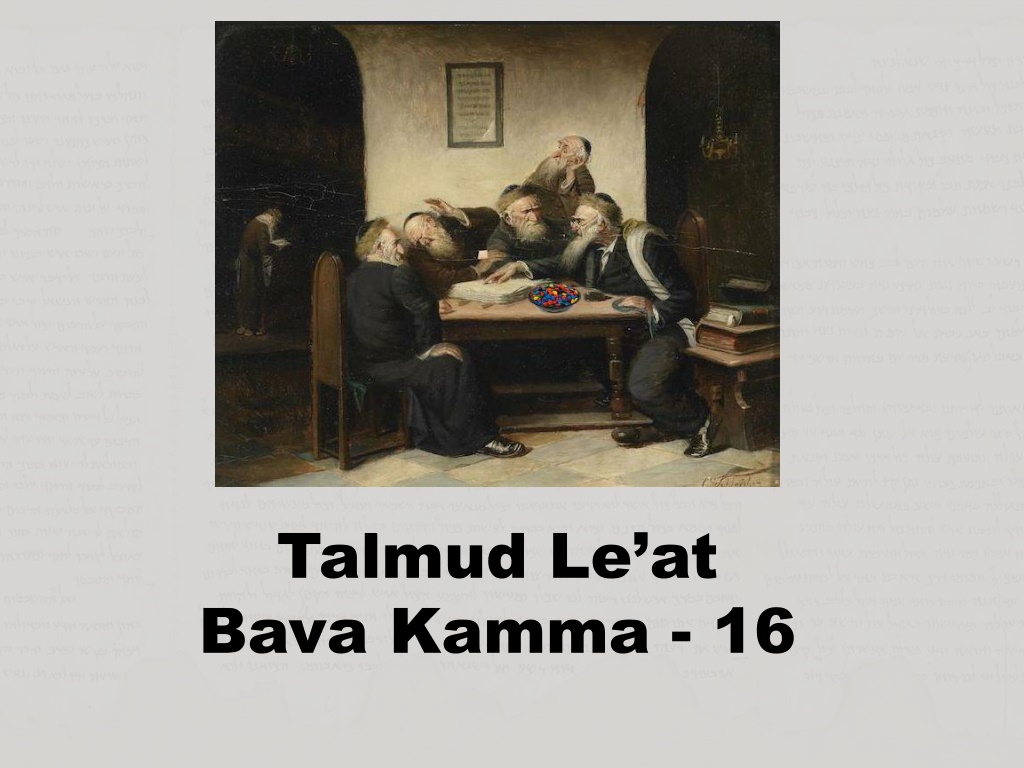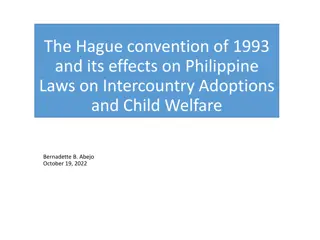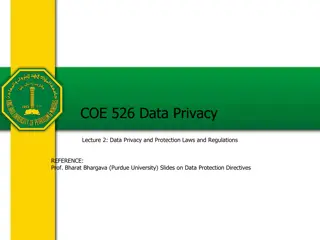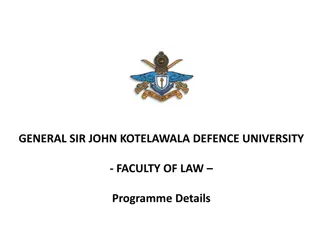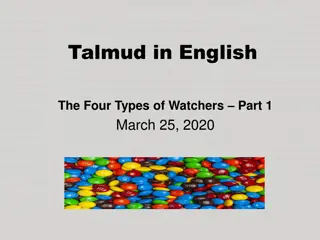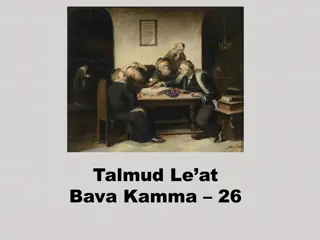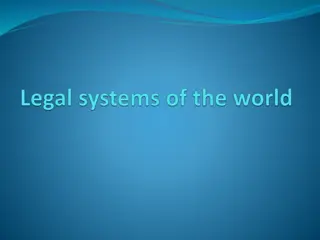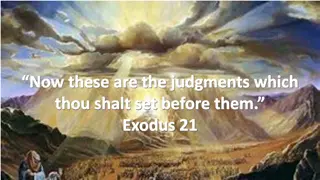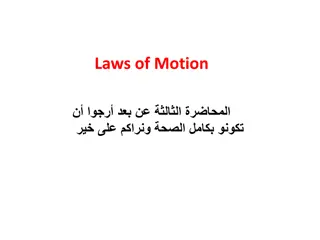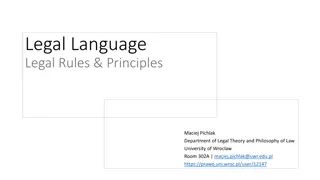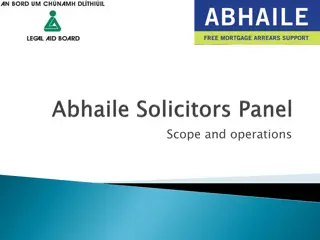Talmudic Laws and Legal Principles
Delve into the intricate legal concepts and principles found in the Talmud, specifically focusing on ownership, liability, and debt collection. Explore discussions on borrower responsibilities, acquisition of assets, and the obligations of guardians. Uncover insights from respected figures like Ulla, R. Elazar, and R. Nahman as they navigate complex legal scenarios and interpretations.
Download Presentation

Please find below an Image/Link to download the presentation.
The content on the website is provided AS IS for your information and personal use only. It may not be sold, licensed, or shared on other websites without obtaining consent from the author.If you encounter any issues during the download, it is possible that the publisher has removed the file from their server.
You are allowed to download the files provided on this website for personal or commercial use, subject to the condition that they are used lawfully. All files are the property of their respective owners.
The content on the website is provided AS IS for your information and personal use only. It may not be sold, licensed, or shared on other websites without obtaining consent from the author.
E N D
Presentation Transcript
Talmud Leat Bava Kamma - 16
Review The carcass o Who owns the carcass? o Who suffers the depreciation of the carcass? o Who has to physically remove the carcass? Do we NOT assess the borrower like the thief? 6 Hits of Ulla o Counting impurity of a woman when the placenta emerges o No redemption of a first-born son who does not live 30 days o Large animals can be acquired by pulling o Don t assess clothes being worn as part of an estate evaluation o Guardians that hand over items to another guardian o Collecting debts with slaves 2 Talmud Le'at - 16
Bava Kamma 11b And Ulla said in the name of R. Elazar: The law is we collect from slaves. R. Nahman said to Ulla: Did R. Elazar say even from orphans? No, from himself. From himself? Even the cloak off his shoulder! 3 Talmud Le'at - 16
Bava Kamma 12a : , " : " : " After he left, Ulla said to them: Thus stated R. Elazar: "even from heirs" R. Nahman said: Ulla evaded me 4 Talmud Le'at - 16
Bava Kamma 12a " : This happened in Nehardea and the judges of Nehardea collected This happened in Pumbeditha and R. Hana b. Bizna collected But R. Nahman said to them: Go and retract, and if not I will collect your homes 5 Talmud Le'at - 16
Bava Kamma 12a , , ? " : " ; Rava said to R. Nahman: "There is Ulla, there is R. Elazar, there are the judges of Nehardea and there is R. Hana b. Bizna; To whom does the Master hold?" 6 Talmud Le'at - 16
Deuteronomy 15:1-2 At the end of every seven years you shall make a release (shmitta) And this is the manner of the release: every creditor shall release that which he has lent to his neighbor; he shall not exact it of his neighbor and his brother; because the LORD'S release has been proclaimed. 7 Talmud Le'at - 16
Bava Kamma 12a : , " : He said to him: "I know a baraita, for Avimi taught: A prosbul is effective on land and is not effective on slaves. Movable property can be acquired with land but not acquired with slaves." 8 Talmud Le'at - 16
Bava Kamma 12a ? Shall we say as Tannaim? 9 Talmud Le'at - 16
Talmudic Terminology - Shall we say ( ) Introduces a proposal that will ultimately be rejected - Shall we say as Tannaim? Shall we say that the argument between Amoraim (R. Nahman & Ulla) is equivalent to the argument between Tannaim? 10 Talmud Le'at - 16
Bava Kamma 12a : , , ; He sold him slaves and lands: if he took possession of the slaves, he has not acquired the land; of the land, he has not acquired the slaves 11 Talmud Le'at - 16
Bava Kamma 12a , : , ; Lands and movable goods: if he took possession of the land, he has acquired the movable goods; of the movable goods, he has not acquired land. 12 Talmud Le'at - 16
Bava Kamma 12a , : , ; Slaves and movable goods: if he took possession of the slaves, he has not acquired the movable goods; of the movable goods, he has not acquired the slaves. 13 Talmud Le'at - 16
Bava Kamma 12a , : ? But has it not been taught: If he took possession of the slaves, he has acquired the movable goods Now, it is not this they argue about? That one Master holds that slaves are like land and one Master holds that slaves are like movable goods? 14 Talmud Le'at - 16
Bava Kamma 12a : " " " " " R. Ika the son of R. Ammi said: Everyone holds that slaves are like land and the Baraita that teaches "acquired" is clearly understood and the Baraita that teaches "not acquired" requires land be like the fortified cities of Judah that do not move 15 Talmud Le'at - 16
Mishnah Kiddushin 1:5 1) Property which has security is acquired by money, by deed or by possession. 2) That which does not have security is acquired only by pulling. 3) Property which does not have security may be acquired in conjunction with property which does have security by money, deed, or possession 16 Talmud Le'at - 16
Bava Kamma 12a : " , " " ? " For we have learned: "Property which does not have security may be acquired with property which does have security: by money, by deed, or by possession" From where do we know this? Hizkiyah said: The verse says, "And their father gave them many gifts of silver and of gold and of precious things with fortified cities in Judah" (II Chronicles 21:3) 17 Talmud Le'at - 16
Bava Kamma 12a " : : " " " " There are those who say: R. Ika the son of R. Ammi said: Everyone agrees that slaves are like movable goods and the baraita that teaches "not acquired" is clearly understood This baraita that teaches "acquired" where the movables are on 18 Talmud Le'at - 16
Exodus 22:3 If the theft be certainly found in his hand, whether an ox or a donkey or a sheep alive, he shall pay double Rashi: IF THE THEFT BE CERTAINLY FOUND IN HIS HAND - in his possession 19 Talmud Le'at - 16
Bava Kamma 12a ? , " " But if they were on, what does it matter? It is a "moving courtyard" and a moving courtyard does not acquire. 20 Talmud Le'at - 16
Bava Kamma 12a : " " , And if you were to say "stationary", did not Rava say: whatever cannot be acquired while in motion, standing or sitting cannot be acquired This law applies when tied up 21 Talmud Le'at - 16
Bava Kamma 12a "? , " : , " " But wasn't it taught: "If he took possession of the land, he has acquired the slaves" There, standing in it This implies that this "not acquired" where not standing in it 22 Talmud Le'at - 16
Bava Kamma 12a : , , ; , : : ? , That goes well according to the version that R. Ika the son of R. Ammi said: slaves are like movable property; for if they are standing in it, Yes, if not, No But according to that version which said: slaves are like land, why do they need to be standing in it? But Shmuel said: sold him ten fields in ten countries, once he has taken possession of one of them, he has taken possession of all 23 Talmud Le'at - 16
Bava Kamma 12a ? ! But according to the version that says slaves are like movable property, why standing in it? We established that does not need to be piled! , 24 Talmud Le'at - 16
Bava Kamma 12b : Rather, what can you say: Movable property that propels itself is different from movable property that does not propel itself 25 Talmud Le'at - 16
Bava Kamma 12b " Here too there is a difference in land that propels itself and land that does not propel itself Slaves are land that propels itself There, the land is one block , 26 Talmud Le'at - 16
Bava Kamma Mishnah 1:2-2 When one damages property that does not have ( sacrilege ) the damager must make restitution for the damage with the best of his land. 27 Talmud Le'at - 16
Leviticus 5:15-16 When a person commits a trespass, being unwittingly remiss about any of the LORD s sacred things, he shall bring as his penalty to the LORD a ram without blemish from the flock, convertible into payment in silver by the sanctuary weight, as a guilt offering. He shall make restitution for that wherein he was remiss about the sacred things, and he shall add a fifth part to it and give it to the priest. The priest shall make expiation on his behalf with the ram of the guilt offering, and he shall be forgiven. 28 Talmud Le'at - 16
Bava Kamma 12b ' " " ? ' " : ' ; ' "The property must be of a kind to which the law of sacrilege does not apply, etc." The law of sacrilege does not apply, but it is still holy. Who is the Tanna? R. Yohanan said: It refers to Less Holy Sacrifices and it follows R. Yose the Galilean, who said them to be private property; for it has been taught: "And commits a trespass against the Lord" (Leviticus 5:21) this comes to include Less Holy Sacrifices, which are considered private property; the words of R. Yose the Galilean. 29 Talmud Le'at - 16
Leviticus 5:21 - ; - If any one sin and commit a trespass against the LORD, and deal falsely with his neighbor in a matter of deposit, or of pledge, or of robbery, or have oppressed his neighbor 30 Talmud Le'at - 16
Bava Kamma 12b , : , ? But has it not been taught: If one betroths by means of his portion, whether of Most Holy Sacrifice or Less Holy Sacrifices, she is not betrothed Shall we say that this does not follow R. Yose the Galilean? 31 Talmud Le'at - 16
Bava Kamma 12b ; ; ' ' ' You may even say that this follows R. Yose the Galilean; for R. Yose the Galilean said while alive; but after slaughter, even R. Yose the Galilean admits, for when they acquire from the Divine table, they acquire 32 Talmud Le'at - 16
Bava Kamma 12b ? : ;( ) And did he say while alive? We have learned: A first-born animal unblemished may be sold while alive; but if blemished alive and when slaughtered It may similarly be used for the betrothal of a woman. 33 Talmud Le'at - 16
Bava Kamma 12b " : ; And R. Nahman said in the name of Rabbah b. Avuha: This was taught only in the case of a first-born at the present time, since it is not fit to be sacrificed the priests possess a right to it; but at the time when the Temple still existed, when it would have been fit to be sacrificed, no. 34 Talmud Le'at - 16
Bava Kamma 12b " : , : - ' " ' " And Rava raised a difficulty against R. Nahman: "And commits a trespass against the Lord" - to include Less Holy Things, which are his property: the words of R. Yose the Galilean 35 Talmud Le'at - 16
Bava Kamma 12b : " " , ; ; , , And Ravina responded: this refers to first-borns from Outside of the Land and is in accordance with R. Shimon who said: if they were brought unblemished, they will be sacrificed. If they came, yes; But initially, no. 36 Talmud Le'at - 16
Bava Kamma 12b " , Now, if it is true that R. Yose the Galilean holds them private property while alive, he should answer: this is R. Yose the Galilean, and the other the Rabbis 37 Talmud Le'at - 16
Bava Kamma 12b ? Priestly gifts you said? Priestly gifts are different as those who are entitled to them enjoy that privilege as guests at the Divine table. 38 Talmud Le'at - 16
